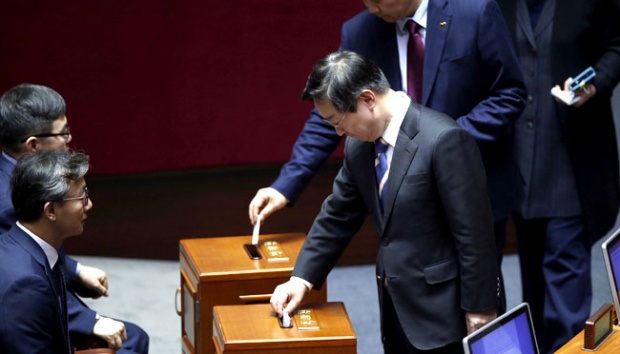Courting votes through gifts and promises, a practice called clientelism, is a common trait shared by many democratic societies. This practice is innate since reciprocity is a feature of human interactions.
In many instances, clientelism did succeed in gaining votes. Yet, there is no straightforward answer whether and how these votes render into trust in the political parties and figures.
Cristian and Grigore Pop-Eleches’ study in Romania found that beneficiaries of government spending were more likely to support the parties of the incumbent governing coalition. But this “exchange” did not translate into a greater trust in individual political leaders at national level although there had been many attempts to credit the central government for the welfare support. The ones who seemed to benefit from such increase in trust are only local governments.
When clientelism turns into inefficient policies, causing an unsustainable fiscal deficit, it could have larger economic repercussions. Thus, pre-election spending binge, followed by post-election budget tightening, may backfire.
In theory, economic principle of indifference curve assumes that people will not feel worse-off if yesterday they were given a certain amount of subsidies but today these subsidies are retracted.
In reality, people are loss-averse, the principle first demonstrated by psychologists Tversky and Kahneman. People prefer avoiding losses to acquiring equivalent gain.
Subsidy retraction might, therefore, lead to disapproval as subsidies create a sense of entitlement.
As people’s incomes go up, a certain amount of additional subsidies will not affect their happiness or satisfaction significantly, exemplifying the law of diminishing returns.
Diminishing returns also rear an ugly head when more political spending actually reduces votes for the respective candidates.
For instance, money spent to saturate media with numerous political campaigns may turn off people who might otherwise vote in the respective candidates’ favour.
So, how can politicians gain trust?
First, trust emerges from what appear to be unconditional gifts. People are more likely to trust politicians when they cannot establish direct political intention from these gifts.
These politicians are labelled to be genuinely trying to deliver. Thus, their unconditional gifts may trickle down into long-term reciprocity.
In Mexico, conditional cash transfers called PROGRESA were given to poor households as long as they visited health centre and their children attended schools. De La O’s study to examine voting behaviour in villages that received Progresa found that votes in favour of the party that initiated Progresa were higher in villages that had enjoyed the benefits for longer.
It could appear that vote-buying was taking place. Yet, if vote-buying really occurred, the duration of the programme would not matter much.
Progresa also did not utilise traditional clientelist distribution channel. All the way down to delivering cash transfers to beneficiaries, Progresa was implemented by an autonomous agency under Mexican Ministry of Social Development.
Since Progresa was successful in improving health and education, those who had been in the programme for longer started to see these benefits in their lives, thus, rewarded the party that initiated this policy.
Consequently, good policies could trump politics in certain circumstances through retrospective voting. It is when people vote based on policy outcomes of the incumbents, not so much because of election promises.
Second, keeping citizens’ happy is not always about giving them more financial incentives.
The long-term interest of any political figure is to keep the citizens happy in exchange for their political support. Yet, people are actually poor in predicting their own happiness.
David Halpern, Chief Executive of the UK Behavioural Insights Team, suggested that three factors are equally important to influence differences in levels of well-being; personality differences, material factors and social factors.
This implies that the government should not direct its effort too much on giving more material support if it were to gain trust from its citizens. Instead, the government should effectively and efficiently design policies targeted at these three factors.
Third, people trust specific messages more than vaguely sounding policy proposals.
Clientelist messages work most of the time because they are often specific. However, a credible message with specific proposals for general-interest policies can also convince voters to vote in favour of the corresponding candidate.
A decade ago, Wantchekon’s experiment in Benin found that voters were more convinced by specific policy proposals for the interest of the public at large rather than clientelist and targeted message but with vague policy proposals.
Trust can, therefore, change politicians’ incentive. It can act as a focal point of balancing long-term public interest and short-term political interest.
Once trust is in place, politicians will realise that if they genuinely attempt to deliver, they will be re-elected. It will lead to better-designed policies for long-term public interest.
Changes from gaining people’s trust will not be radical and pervasive. They will be incremental, yet, as Banerjee and Duflo put in their best-selling PoorEconomics book, these incremental changes can be the start of a quiet revolution.
This article first appeared in English Tempo, 25 August 2017.





